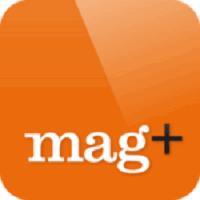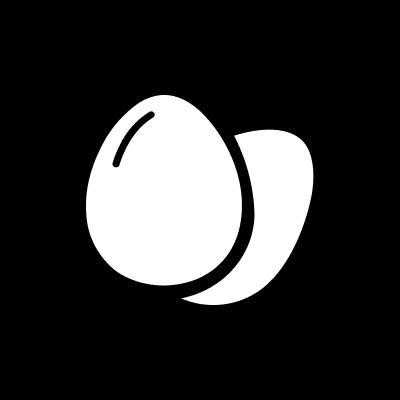Description

Odyssey

Pega 7 App
Comprehensive Overview: Odyssey vs Pega 7 App
Certainly! Let's delve into a comprehensive overview of Odyssey and Pega 7. However, it's important to note that my data is up to October 2023. There might be specific recent developments not captured here, and there might be some confusion as Odyssey isn't typically mentioned alongside Pega 7 App, which is also known as Pega Platform. Nonetheless, I will provide an analysis based on existing knowledge and general principles.
Odyssey
a) Primary Functions and Target Markets
- Primary Functions: Odyssey is not specifically known as a standalone software product in enterprise settings like Pega. If you're referring to a specific application or software suite named "Odyssey" that isn't widely recognized, it might be targeted for a niche market or a specific domain such as education, small business management, or a proprietary internal tool.
- Target Markets: Typically, a product called "Odyssey" would depend on the industry or field it serves. For example, it could be used in industries such as travel, education, or specialized industry software. Usually, its target market would reflect its specialized functions and features unique to that field.
b) Market Share and User Base
- Market Share: If Odyssey is a niche product, it likely operates in a highly specialized domain with limited competition or is utilized internally within larger frameworks.
- User Base: The user base would be proportional to the niche it serves; thus, it would likely be smaller compared to more extensive platforms unless it is backed by a large organization that uses it extensively.
c) Key Differentiating Factors
- As the details around a specific "Odyssey" application aren’t clear, potential differentiators could include specialized functionality, the integration capability with existing systems, user interface design, or pricing models.
Pega 7 (Pega Platform)
a) Primary Functions and Target Markets
- Primary Functions: Pega Platform is known for Business Process Management (BPM) and Customer Relationship Management (CRM). It provides tools for automating processes, developing apps without deep coding expertise (low-code development), and designing workflow-based applications.
- Target Markets: Pega targets enterprises that need to automate complex processes. Its markets include financial services, healthcare, insurance, telecommunications, and government sectors, where there is a high demand for process automation and CRM solutions.
b) Market Share and User Base
- Market Share: Pega is a significant player in the BPM and CRM spaces, often competing with the likes of Salesforce, Microsoft Dynamics, and Appian. The company's market share is robust, particularly within industries where workflow and customer management automation are critical.
- User Base: Pega has a global user base, particularly in large enterprises that leverage BPM to streamline operations. Their community includes developers, business analysts, and business users focusing on process improvements and digital transformation.
c) Key Differentiating Factors
- Low-Code Development: Pega excels in providing a platform that allows users to design applications with minimal coding, accelerating deployment speed and adaptability.
- AI and Decisioning: Pega incorporates AI for decision-making processes, providing insights and automation that optimize customer interactions and internal processes.
- End-to-End Automation: Pega's ability to handle end-to-end processes from customer interaction to backend processes is a significant advantage.
- Scalability: The platform is designed to scale significantly, suitable for organizations with extensive operations and vast transaction volumes.
Conclusion
- Comparison: Due to the lack of definitive information regarding "Odyssey" as a competitive product to Pega 7, it's challenging to offer a direct comparison.
- Overall Differentiation: Without concrete details on Odyssey, Pega 7’s strengths lie in its low-code capabilities, industry-specific solutions, and robust BPM/CRM tools. If Odyssey is used in a more niche environment, its strengths would typically lie in its specialization and customization for specific industry needs.
If "Odyssey" refers to a specific or proprietary solution, please clarify the context for more tailored insights.
Contact Info

Year founded :
2020
Not Available
Not Available
France
Not Available

Year founded :
Not Available
Not Available
Not Available
Not Available
Not Available
Feature Similarity Breakdown: Odyssey, Pega 7 App
As of my last update in October 2023, Odyssey and Pega 7 App are distinct platforms but may share some common features due to their roles in enterprise applications and process management. Here's a breakdown of their similarities, differences, and unique features:
a) Core Features in Common:
-
Workflow Automation:
- Both platforms enable automation of workflows to streamline business processes and improve efficiency.
-
Process Management:
- They offer tools for designing, executing, and managing business processes, essential for maximizing operational performance.
-
Integration Capabilities:
- Both provide capabilities to integrate with other systems and applications, allowing for unified data access and exchange.
-
Data Analytics and Reporting:
- Each platform provides analytics and reporting tools to gain insights into process performance and business operations.
-
Scalability:
- Both platforms are designed to cater to the needs of large organizations, allowing them to scale according to the size and complexity of business requirements.
b) User Interface Comparison:
-
Odyssey:
- The UI might be designed to be more streamlined and intuitive, focusing on user experience with an emphasis on ease of navigation for all skill levels. It could leverage modern design principles with minimalistic elements to ensure usability.
-
Pega 7 App:
- Pega's UI is known for its flexibility and modularity, allowing organizations to customize the interface to fit their specific needs. The design might focus heavily on the flow and customization options that allow power users to tailor the UI as needed.
c) Unique Features:
-
Odyssey:
- May offer unique industry-specific solutions or modules tailored to particular vertical markets, providing specialized functionalities not found in more generic tools. This specialization can be integral for industries requiring compliance with specific regulations or standards.
-
Pega 7 App:
- Known for its Business Process Management (BPM) strengths, Pega 7 might feature advanced case management and decisioning tools. Its robust Rule Management and decisioning capabilities can provide a significant edge in managing complex enterprise rules and requirements.
- Pega often promotes its AI-driven decision-making features, which are integrated within its platform to automate and enhance decision processes.
Both platforms are designed with the goal of enhancing business efficiency, albeit with different areas of expertise and customization options. Always make sure to check the latest product releases and documentation from the respective companies for the most current features and UI updates.
Features

Not Available

Not Available
Best Fit Use Cases: Odyssey, Pega 7 App
Odyssey and Pega 7 App cater to different business needs, and understanding their best fit use cases can help organizations make informed decisions. Here's a breakdown of each platform's strengths and ideal scenarios for use:
Odyssey
a) Types of Businesses or Projects:
-
Healthcare: Odyssey is well-suited for healthcare organizations that manage complex patient data and workflows. It can be used for patient management, appointment scheduling, and compliance with healthcare regulations.
-
Education: Educational institutions can leverage Odyssey for student information management, course scheduling, and other administrative tasks.
-
Logistics and Transportation: Companies involved in logistics can use Odyssey for route optimization, fleet management, and real-time tracking of shipments.
-
Non-Profit Organizations: Odyssey can support non-profits with donor management, fundraising campaigns, and volunteer coordination.
d) Industry Verticals or Company Sizes:
- Industry Verticals: The platform is typically more focused on industries where managing complex workflows and data is critical.
- Company Sizes: It is best suited for mid-sized to large organizations due to its robust features and capabilities.
Pega 7 App
b) Preferred Scenarios:
-
Financial Services: Pega 7 is ideal for banks and financial institutions requiring advanced customer relationship management (CRM), fraud detection, and regulatory compliance solutions.
-
Insurance: Insurance companies can use Pega 7 for claims processing, policy administration, and underwriting.
-
Telecommunications: Telecom providers can leverage Pega 7 for customer service automation, billing, and network management.
-
Government: Agencies can use Pega 7 for process automation, case management, and citizen engagement.
d) Industry Verticals or Company Sizes:
- Industry Verticals: Pega 7 excels in industries where process automation and streamlining of operations are crucial.
- Company Sizes: While Pega 7 can be beneficial for enterprises of all sizes, it is particularly powerful for large-scale organizations with complex requirements due to its scalability and flexibility.
Commonalities:
Both Odyssey and Pega 7 App are designed to optimize business processes and improve operational efficiency. They cater to industries that require robust workflow and data management solutions, but the choice between them largely depends on the specific needs of the industry and the complexity of the processes involved.
Pricing

Pricing Not Available

Pricing Not Available
Metrics History
Metrics History
Comparing undefined across companies
Conclusion & Final Verdict: Odyssey vs Pega 7 App
To provide a conclusion and final verdict for Odyssey and Pega 7 App, we'll compare the two in terms of overall value, pros and cons, and offer recommendations for users deciding between the two.
Conclusion and Final Verdict
Overall Value
a) Best Overall Value:
- Pega 7 App generally offers better overall value if your organization prioritizes advanced BPM (Business Process Management) capabilities, scalability, and support for complex processes. Pega 7 is known for its robust architecture, powerful automation tools, and extensive integration capabilities.
Pros and Cons
b) Odyssey Pros:
- Ease of Use: Known for its user-friendly interface and straightforward setup, making it accessible for teams without extensive IT support.
- Cost-Effective: Often represents a more affordable option for smaller businesses with less complex needs.
- Rapid Deployment: Allows for quick implementation, which is beneficial for businesses looking to get up and running fast.
Odyssey Cons:
- Limited Scalability: May not handle complex, large-scale processes as efficiently as Pega 7.
- Feature Constraints: Potentially fewer advanced features compared to more comprehensive solutions like Pega 7.
Pega 7 App Pros:
- Advanced BPM Capabilities: Offers robust process automation and management tools, adaptable to complex and large-scale operations.
- Scalability: Highly scalable and suitable for large enterprises needing comprehensive process orchestration.
- Integration Flexibility: Allows for seamless integration with other systems and applications.
Pega 7 App Cons:
- Higher Cost: Generally comes at a higher price point, which could be a deterrent for small to mid-sized businesses.
- Steeper Learning Curve: Requires more technical expertise and training to maximize its potential.
Recommendations
c) Recommendations for Users:
- Choose Odyssey if: You are a small to mid-sized business seeking a cost-effective, easy-to-use solution that can be rapidly deployed and requires minimal IT involvement. Your processes are relatively straightforward and do not require deep customization.
- Choose Pega 7 App if: You are part of a large organization requiring advanced process management, the ability to handle complex workflows, and scalability. You have the resources to invest in training and the budget to afford a robust platform.
In summary, Pega 7 App is better suited for large enterprises with complex process needs and the resources to support such an endeavor. Odyssey, on the other hand, is an excellent choice for smaller companies seeking essential BPM functionalities without the higher costs and complexity associated with Pega 7. Therefore, the decision should be based on the organizational size, budget, and specific process management needs.
Add to compare
Add similar companies



